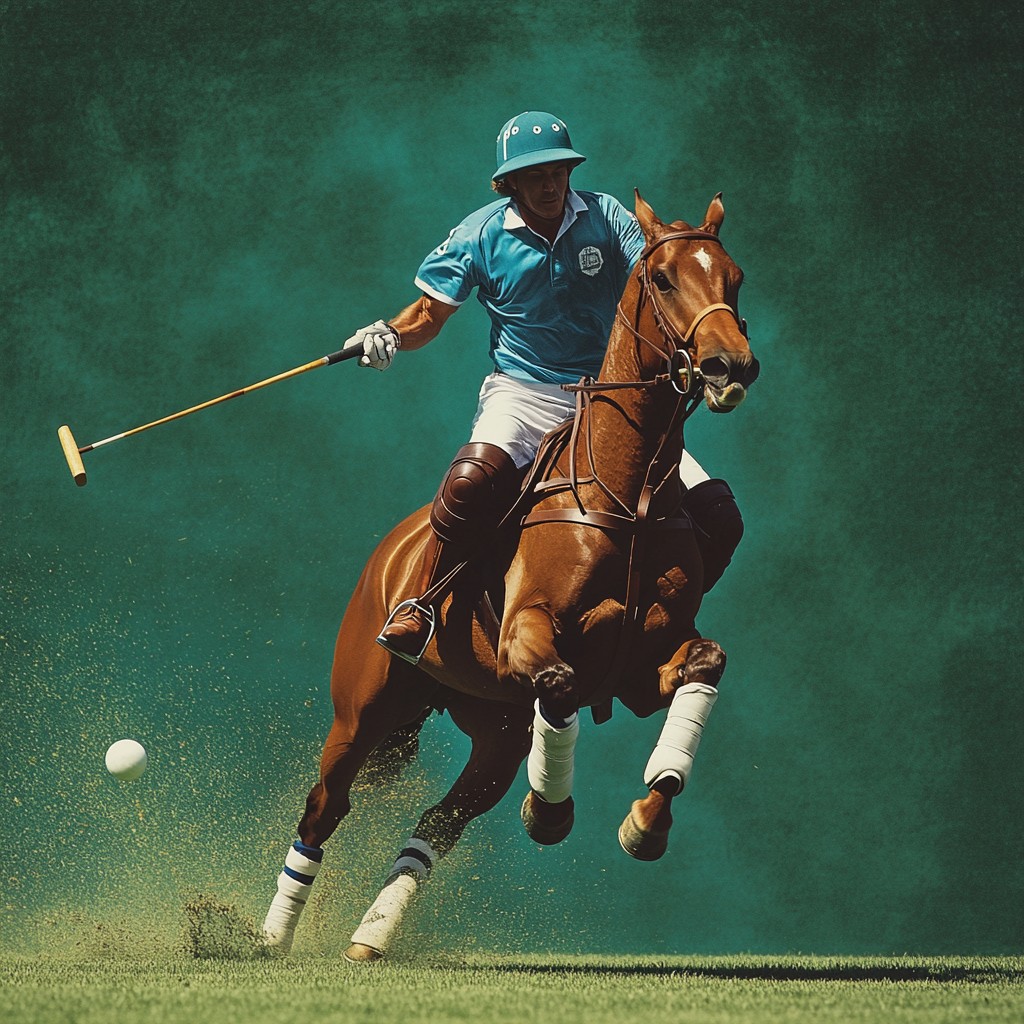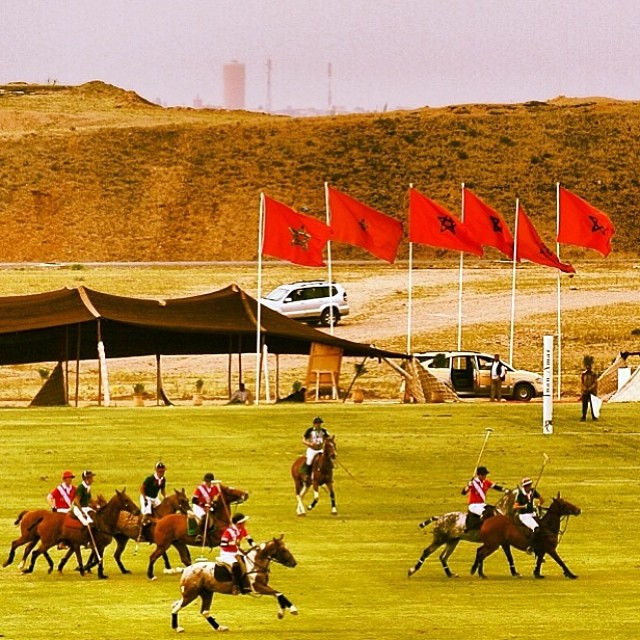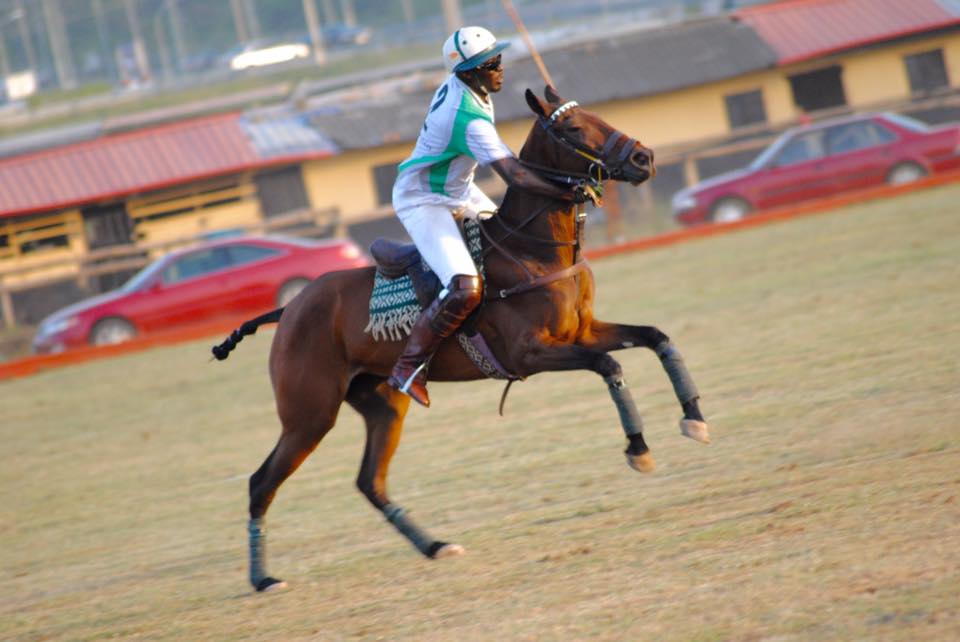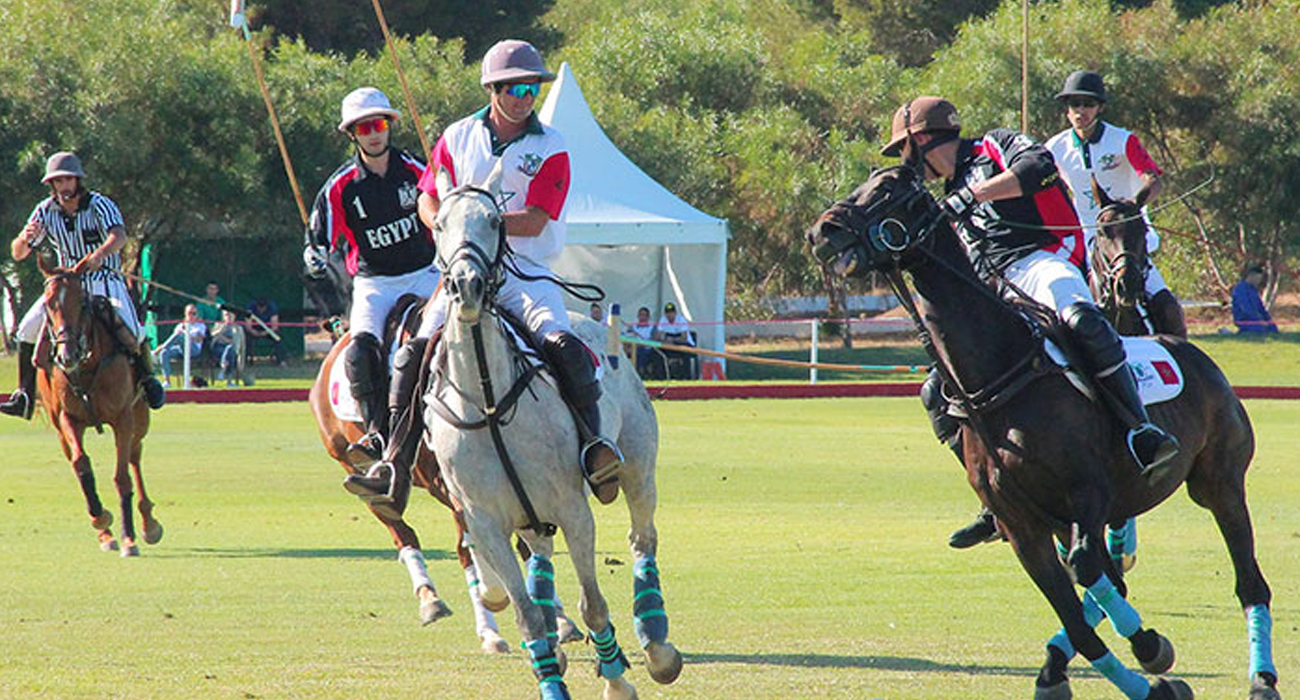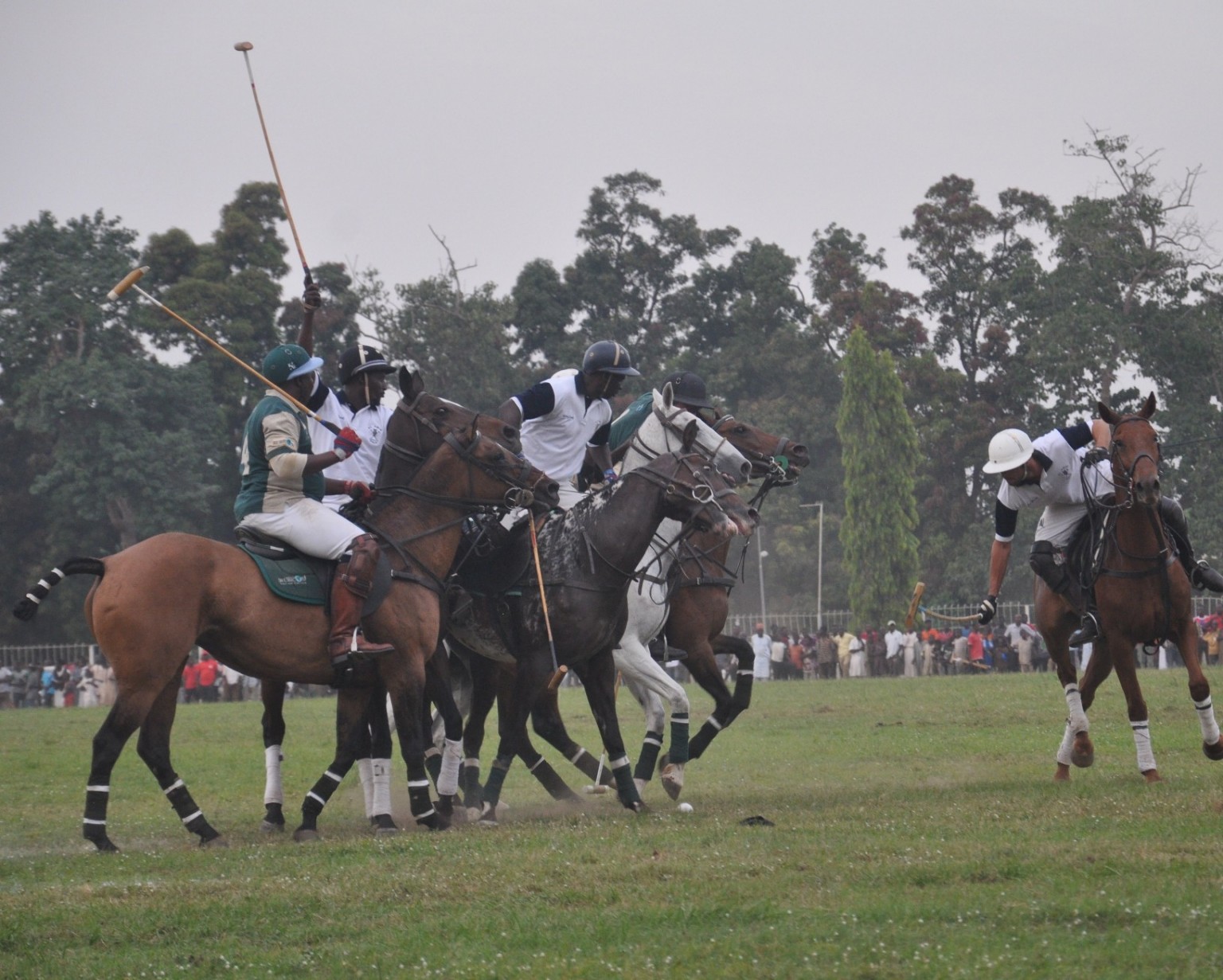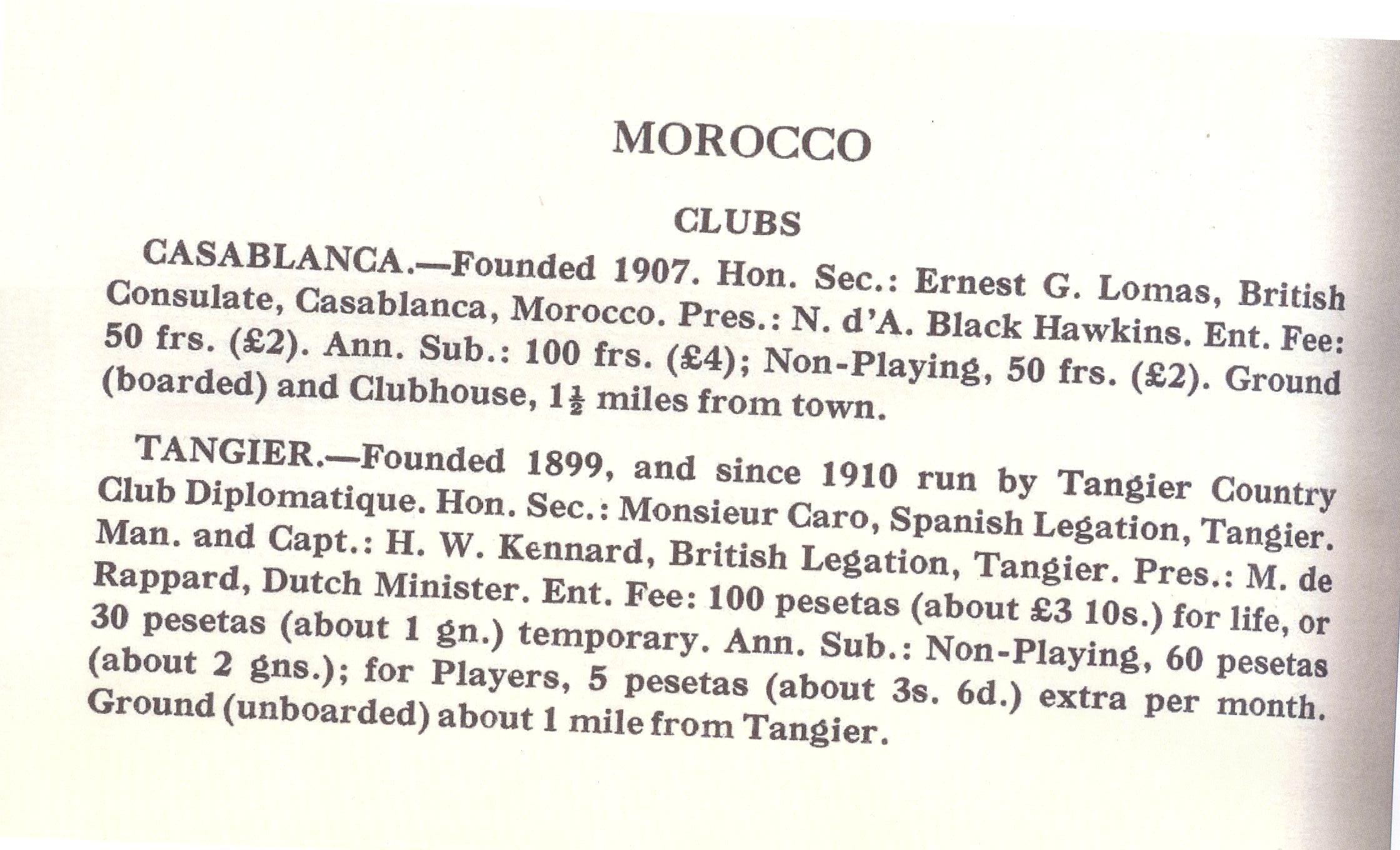POLO IN AFRICA - WHAT IS THE WAY FORWARD?
OPINION
A few years ago, I had a meeting with Mr. Nicholas Colquhoun-Denvers, former President of the Federation of International Polo (FIP). He was concerned about the level of polo being played in Africa and about why most African polo-playing countries were not participating in FIP activities. I listed what I thought were the main reasons for the lack of participation in FIP activities, the primary of which is the handicap level for the FIP World Cup and how it was impossible for African countries to raise teams to fit into the format. We agreed that it is imperative and very necessary that a tournament format specifically suited for low goal (4–6 goals) be created to enable participation by these low goal-playing countries, thus the idea of a Pan-Africa Polo Championship. The nuts and bolts are still being worked out, but this initiative will represent a new beginning for polo in Africa.
I had always been concerned about polo development in Africa and indeed the world, probably the continent with the most prospect to be the next frontier for polo development in the world. For polo to be a household name worldwide like football or even, golf, we need to tap into all potential hotspots for the game's development, and Africa indeed presents an old but yet all-new frontier towards achieving this noble objective.
Polo first came to Africa by virtue of the British colonial Army and was played in South Africa in the 1890s. It spread to West Africa and other British colonies, and by the early 1900s, the sport was well rooted in most British protectorates which included Ghana, Sudan, Nigeria, Egypt, Kenya, Uganda, South Africa, Zimbabwe, etc.
I clearly see that there is a need to elevate the game of polo in Africa, and I often ponder on how best this can be achieved. I recently came across a report on CNN about taking polo to the next level in Nigeria, meaning the Argentines are taking polo to the next level. What is the next level? As we try to define what the "next level" is, here is my understanding of what the next level for polo in Nigeria and indeed Africa should be. The news story indicated that the participation of the Argentine professionals is taking the game in Nigeria to a higher level because it presents a higher level (handicap) of play. For me, this is to the detriment of the local Nigerian playing community, especially the teeming group who want to be professionals who are denied the necessary exposure and playing time. Secondly, the news story indicated that all the horses used were imported, which means there is no active local horse breeding program (despite an estimated 3,000 Argentine breed of horses imported into Nigeria in the last 30 years). Some of our actions tend to make polo a high-stakes and expensive game, and I think this turns people off right at the beginning. To develop polo in countries such as Nigeria and much of Africa, there is a need to put more effort into developing local talent. This will include an active youth engagement and training programme. There is also a need to lower the entry level for the sport by making it less expensive; an active local breeding program will surely help in this regard. Unfortunately, there are people who indeed feel polo has to be high stakes ab initio, and the high bars to playing polo represent a good future for the sport. There are others who also ardently hold on to the premise that polo is indeed the "game of Kings and the King of games" and it should remain so. I obviously think otherwise.
Indeed, right from its earliest roots, polo had caught the fancy of Royalty wherever it went the world over. The beauty and grace of the horse coupled with the romantic allure and charm of the Regal King or Prince was an attraction. Royalty and top society bedecked in vivid colours of pomp and pageantry combined to attract spectators, and it all added up to make the game truly and aptly deserving of the title of being called the Game of Kings. This allure and pomp associated with the game has also attracted the top echelons of society and the extremely rich who want to be associated with this aspect of the game.
I am not worried about polo being the Game of Kings; it is the "King of Games" part I am a bit concerned with. While I as a polo player may very much appreciate why the gracefulness, the required commitment, and the excitement and satisfaction of a good game can make polo the King of Games, I see football, tennis, cricket, and golf—yes, GOLF—having taken the lead as Kings of Games. This in part, I believe, is in their ease of accessibility to people, both players and spectators. I have known many a polo player who has attempted to explain why his stick bag should not be weighed in at a check-in counter at the airport. We always try to explain why our stick bags should be treated the same way as golf bags! This alone tells us that we must do away with this illusion about being the King of Games and dig deeper! The sports that are currently, in my estimation, the Kings of Games have their top players earning very good pay. They have a large fan/spectator following, huge sponsorship funds running into millions, and earnings from TV licenses that are out of this world. I wonder which game indeed is the King of Games.
I have always marvelled at what was done with golf and these other sports. I have wondered what rabbit the magicians in golf pulled out to reinvent golf and make such a drab and boring sport such a big-time money spinner! We obviously need to get our own rabbit from the polo hat quickly! To better illustrate my take on this, put Lionel Messi, Adolfo Cambiaso, Tiger Woods, and Serena Williams on a bus to Timbuktu or Siberia and see who keeps getting asked "who did you say you are?"
In Africa, I think South Africa seems to be doing something right. They did something a few years ago through their grounds development, their continued encouragement of junior polo in schools, arena polo (cheaper), and a healthy breeding program put South Africa way ahead of the rest of Africa. I think in the same vein, the rest of Africa should eschew the notion that polo has to be so expensive (as this makes it only a novelty reserved for the rich) and make it as open to many as possible. I have had the bitter experience of having to explain to potential sponsors why we do indeed need their sponsorship. We have portrayed our sport as a sport for only the rich, and most sponsors therefore will think we don't need any outside support to develop the sport. There are certain things we need to do before we can reclaim our title of yore, of being the Game of Kings and the King of Games.
We need to create a conducive atmosphere to promote the sport and make it open to as many as can be possible, especially youngsters. On this, I have thought about what the HPA has been doing with their SUPA and junior riders programme and also what South Africa is doing with their schools Championships. Egypt, I believe, had also been organising training camps for youth, and OHO, an organisation chaired by Mallam Ahmed Dasuki, has been in the forefront of training and exposing youngsters from Nigeria and Ghana in proper polo techniques. Such programmes will indeed help a lot, and they need to be supported.
We need to create a conducive atmosphere, especially through training, for the development of new local talent. A sport becomes more popular in a society where fans and spectators share similar backgrounds and can easily identify with the players. Indeed, it is disheartening to note that there has not been any new kid on the block to reach 4 goals in years. There are several countries in which the "high goaler" is only 2 goals.
We need to create active competitions where there is great play and rivalry rather than domination. Domination kills any sport. The spectators eventually get bored from watching a game where there is nothing choking you in the throat, in a game where the adrenaline of watching is permanently at zero. People will simply lose interest. The opponents themselves, after a few years of being dominated by the same team, will lose hope and stop attending whatever competition it is. Polo needs to be dynamic; it needs to be ever transforming and changing!
I have had a few interesting discussions with top polo administrators and was privileged to meet with Mr. Nicholas Colquhoun-Denvers as earlier mentioned. He so much believes that developing a low to medium goal Championship for Africa, which is in Zone E of the FIP, would be a good starting point to generate interest in the game in Africa, especially as national pride and honour would be involved. Subsequent editions may introduce age limits and restrictions to induce interest in youth development.
As for the creation of an African Polo Confederation that regroups all African federations into a close group, this Confederation would be the main driver and develop the Polo to the continental level, so as to guide the FIP. It organizes and administers the main continental competitions, such as various selections, or clubs, and is also responsible for the continental competitions of youth and women polo.
While I eagerly await the final call on this new initiative for African polo, I hope that we will all try to put on our thinking caps and get a hold of that rabbit in the hat!
--ENDS--
Rabii Benadada is a researcher in sports management at the ISCAE Business School Casablanca, Morocco


